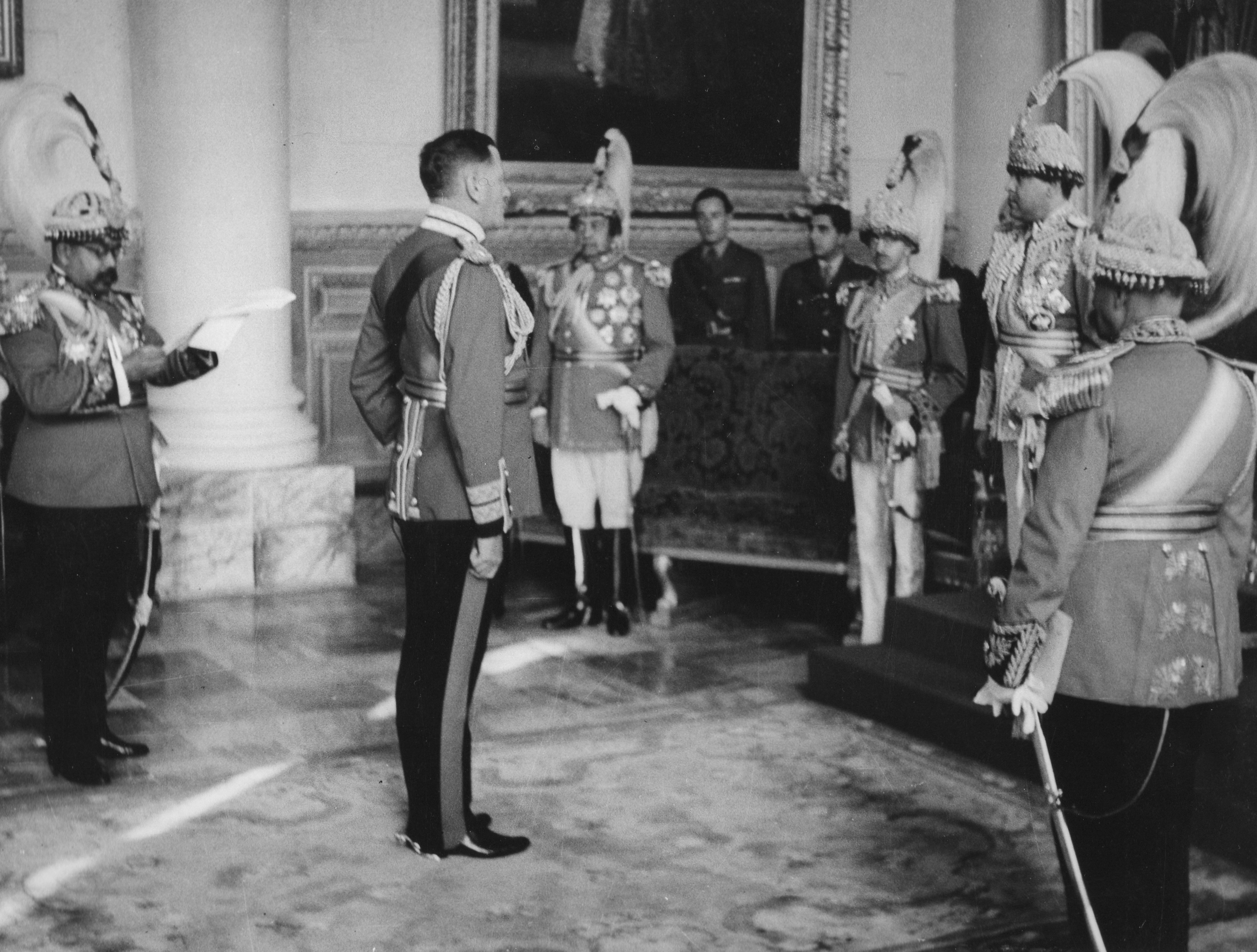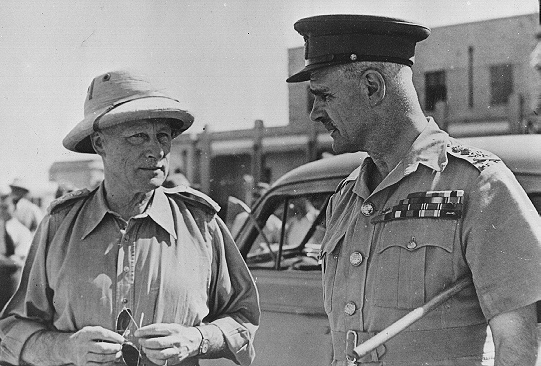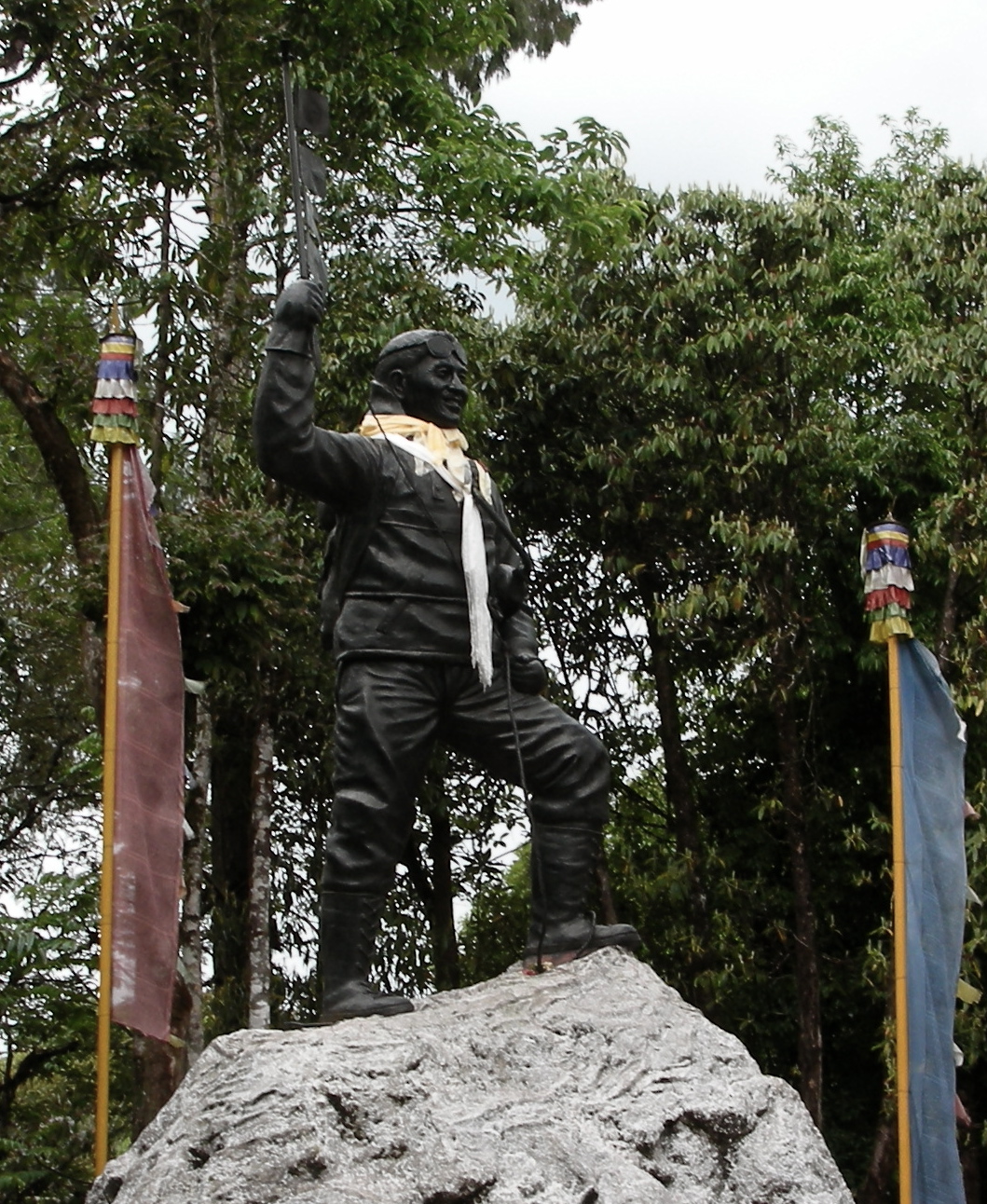|
Nepal Tara
The Most Refulgent Order of the Star of Nepal ( ne, नेपाल तारा ''Nepal Taradisha'') is an award of Nepal. History It was instituted by King Tribhubhan Bir Bikram Shah Dev on 19 November 1918. Attached to the order is a medal (Nepal-Tara-Padak) instituted by King Tribhuvan in 1936. Grades The order consists of the Sovereign, Grand Master and ordinary members. For the ordinary members there are five grades and an associated medal (Nepal Tara Padak) The order is presented for outstanding civil or military merit.: * Member First Class (''Supradipta-Manyabara-Nepal-Tara'') * Member Second Class (''Pradipta-Manyabara-Nepal-Tara'') * Member Third Class (''Manyabara-Nepal-Tara'') * Member Fourth Class (''Manya-Nepal-Tara'') * Member Fifth Class (''Nepal-Tara'') * Medal (''Nepal-Tara-Padak'') Notable recipients * FM Sir Claude Auchinleck (1945) * Rt Hon Sir Winston Churchill (1961) * Boutros Boutros-Ghali * Bhanbhagta Gurung * Louis Mountbatten, 1st Earl Mountb ... [...More Info...] [...Related Items...] OR: [Wikipedia] [Google] [Baidu] |
King Of Nepal
The King of Nepal (traditionally known as the Mahārājdhirāja i.e. Great King of Kings; it can also be translated as "Sovereign Emperor" ( ne, श्री ५ महाराजधिराज)) was Nepal's head of state and monarch from 1768 to 2008. He served as the head of the Nepalese monarchy—Shah Dynasty. The monarchy was abolished on 28 May 2008 by the 1st Constituent Assembly. The subnational monarchies in Mustang, Bajhang, Salyan, and Jajarkot were abolished in October of the same year. History The Kingdom of Nepal was founded on 25 September 1768 by Prithvi Narayan Shah, a Gorkha king who succeeded in unifying the kingdoms of Kathmandu, Patan, and Bhaktapur into a single state under his Shah dynasty. The Kingdom of Nepal was ''de jure'' an absolute monarchy for most of its history. However, from 1846 until the 1951 revolution, the country was ''de facto'' ruled by the hereditary prime ministers from the Rana dynasty, reducing the role of the Shah monarch t ... [...More Info...] [...Related Items...] OR: [Wikipedia] [Google] [Baidu] |
Louis Mountbatten, 1st Earl Mountbatten Of Burma
Louis Francis Albert Victor Nicholas Mountbatten, 1st Earl Mountbatten of Burma (25 June 1900 – 27 August 1979) was a British naval officer, colonial administrator and close relative of the British royal family. Mountbatten, who was of German descent, was born in the United Kingdom to the prominent Battenberg family and was a maternal uncle of Prince Philip, Duke of Edinburgh, and a second cousin of King George VI. He joined the Royal Navy during the First World War and was appointed Supreme Allied Commander, South East Asia Command, in the Second World War. He later served as the last Viceroy of British India and briefly as the first Governor-General of the Dominion of India. Mountbatten attended the Royal Naval College, Osborne, before entering the Royal Navy in 1916. He saw action during the closing phase of the First World War, and after the war briefly attended Christ's College, Cambridge. During the interwar period, Mountbatten continued to pursue his naval career, ... [...More Info...] [...Related Items...] OR: [Wikipedia] [Google] [Baidu] |
Benito Mussolini
Benito Amilcare Andrea Mussolini (; 29 July 188328 April 1945) was an Italian politician and journalist who founded and led the National Fascist Party. He was Prime Minister of Italy from the March on Rome in 1922 until his deposition in 1943, and "Duce" of Italian Fascism from the establishment of the Italian Fasces of Combat in 1919 until his execution in 1945 by Italian partisans. As dictator of Italy and principal founder of fascism, Mussolini inspired and supported the international spread of fascist movements during the inter-war period. Mussolini was originally a socialist politician and a journalist at the ''Avanti!'' newspaper. In 1912, he became a member of the National Directorate of the Italian Socialist Party (PSI), but he was expelled from the PSI for advocating military intervention in World War I, in opposition to the party's stance on neutrality. In 1914, Mussolini founded a new journal, ''Il Popolo d'Italia'', and served in the Royal Italian Army durin ... [...More Info...] [...Related Items...] OR: [Wikipedia] [Google] [Baidu] |
Archibald Wavell, 1st Earl Wavell
Field Marshal Archibald Percival Wavell, 1st Earl Wavell, (5 May 1883 – 24 May 1950) was a senior officer of the British Army. He served in the Second Boer War, the Bazar Valley Campaign and the First World War, during which he was wounded in the Second Battle of Ypres. In the Second World War, he served initially as Commander-in-Chief Middle East, in which role he led British forces to victory over the Italians in western Egypt and eastern Libya during Operation Compass in December 1940, only to be defeated by the German Army in the Western Desert in April 1941. He served as Commander-in-Chief, India, from July 1941 until June 1943 (apart from a brief tour as Commander of ABDACOM) and then served as Viceroy of India until his retirement in February 1947. Early life Born the son of Archibald Graham Wavell (who later became a major-general in the British Army and military commander of Johannesburg after its capture during the Second Boer WarSchofield 2006, p. 15) and Lill ... [...More Info...] [...Related Items...] OR: [Wikipedia] [Google] [Baidu] |
Pasang Lhamu Sherpa
Pasang Lhamu Sherpa (Sherpa: , ne, पासाङ ल्हामु शेर्पा; 10 December 1961 – 22 April 1993) was the first Nepalese woman to climb the summit of Mount Everest. She was born in a mountaineering family and was involved in climbing from her teens. She had successfully climbed Mount Blanc, Mount Cho Oyu, Mount Yalapic, Pisang Himal, and others. She had attempted to climb Mount Everest three times before, but did not succeed until April 22, 1993, when she reached the summit by the South Col via the Southeast Ridge route. The morning of April 22, 1993 was bright and clear, and remained so until Pasang reached the top of the 8,848 m. peak with five Sherpas, Sonam Tshering Sherpa, Lhakpa Norbu Sherpa, Pemba Dorje Sherpa and Dawa Tashi Sherpa. Meanwhile, a member of the team and five-time Everest summitter Sonam Tshering Sherpa got seriously sick at south summit and, despite Pasang Lhamu's efforts to help, did not survive his illness. Whil ... [...More Info...] [...Related Items...] OR: [Wikipedia] [Google] [Baidu] |
Kiran Shamsher Rana
Commander in Chief Kiran Shamsher Jang Bahadur Rana (1916–1983) was a Nepalese army officer. He served as the Nepali Army, Royal Nepalese Army's Commander-in-Chief from 1951–1956 and as the Nepalese ambassador to the United Kingdom from 1973–1977. Over the course of thirty years, he served as Aide-de-camp General to Tribhuvan of Nepal, King Tribhuvan, Mahendra of Nepal, King Mahendra and Birendra of Nepal, King Birendra. Biography Kiran Shamsher Jang Bahadur Rana was born in October 1916 at the Jaulakhel Durbar, Jawalakhel Durbar, son of the Maharajah Juddha Shamsher Jang Bahadur Rana, Prime Minister of Nepal and his fifth wife, Sahila Maharani. Career He joined the Nepali Army in 1933 and during World War II, he commanded ‘the famous’ Mahendra Dal Battalion of the Nepalese Army in 1940, sent in aid of the Allied Forces in the North-West Frontier Province (1901–1955), North-West Frontier and the Eastern Active Service Area in India. For his service he was mentioned in ... [...More Info...] [...Related Items...] OR: [Wikipedia] [Google] [Baidu] |
Baber Shamsher Jang Bahadur Rana
Sir Baber Shumsher Jung Bahadur Rana, GCVO, GBE, KCSI, KCIE (27 January 1888 – 12 May 1960) was a member of the Rana dynasty who served as the Minister of Defence of Nepal in 1951. A prominent member of the Rana oligarchy, he fought valiantly in the First World War. He was the second son of Maharaja Sir Chandra Shamsher Jang Bahadur Rana and Bada Maharani Chandra Loka Bhakta Lakshmi Devi. He was the younger brother of Maharaja Sir Mohan Shamsher Jang Bahadur Rana and older brother of Field Marshal Sir Kaiser Shamsher Jang Bahadur Rana. Family Sir Baber Shumsher Jang Bahadur Rana was born to Field Marshal H.H. Svasti Sri Madati Prachandra Bhujadandyetyadi Ati-Projjwala-Nepal-Taradisha Sri Sri Sri Maharaja Chandra Shamsher Jang Bahadur Rana, T'ung-ling-ping-ma-Kuo-Kang-wang, Maharaja of Lamjung and Kaski, GCB and Bada Maharani Chandra Loka Bhakta Lakshmi Devi on January 27, 1888, at Kathmandu. He married twice, first in 1903, to Sri Bada Rani Deva Bakhta Rajya Lakshmi; and secon ... [...More Info...] [...Related Items...] OR: [Wikipedia] [Google] [Baidu] |
Tenzing Norgay
Tenzing Norgay (; ''tendzin norgyé''; perhaps 29 May 1914 – 9 May 1986), born Namgyal Wangdi, and also referred to as Sherpa Tenzing, was a Nepali-Indian Sherpa mountaineer. He was one of the first two people known to reach the summit of Mount Everest, which he accomplished with Edmund Hillary on 29 May 1953. ''Time'' named Norgay one of the 100 most influential people of the 20th century. Early life There are conflicting accounts of Tenzing's early life. In his autobiography, he wrote that he was a Sherpa born and raised in Tengboche, Khumbu, in northeastern Nepal.Tenzing & Ullman In a 1985 interview with All India Radio, he said his parents came from Tibet, but that he was born in Nepal. According to many later accounts, including a book co-written by his son Jamling Tenzin Norgay, he was born in Tibet, at Tse Chu in the Kama Valley, and grew up in Thame. He spent his early childhood in Kharta, near the north of the country. Norgay went to Nepal as a child to ... [...More Info...] [...Related Items...] OR: [Wikipedia] [Google] [Baidu] |
Bhanbhagta Gurung
Havildar Bhanbhagta Gurung, VC ( ne, भनभक्त गुरुङ; September 1921 – 1 March 2008), also known as Bhanbhakta Gurung, was a Nepalese Gurkha recipient of the Victoria Cross, the highest and most prestigious award for gallantry in the face of the enemy that can be awarded to British and Commonwealth forces, awarded for his actions while serving as a Rifleman with the 3rd Battalion of the 2nd Gurkha Rifles in Burma during the Second World War. Early life and service Bhanbhagta Gurung was born in Phalpu, a small hill village in western Nepal in the district of Gorkha in September 1921.Staunton 2008, p. 48. He enlisted in the British Indian Army during World War II, joining 3rd Battalion of the 2nd King Edward VII's Own Gurkha Rifles (The Sirmoor Rifles), which recruited from the Gurung people, at the age of eighteen. Promoted to lance naik (equivalent to lance corporal), he served in the first Chindit expedition (Operation Longcloth) led by Brigadier Orde Wi ... [...More Info...] [...Related Items...] OR: [Wikipedia] [Google] [Baidu] |
Order (honour)
An order is a visible honour awarded by a sovereign state, monarch, Dynasty, dynastic house or organisation to a person, typically in recognition of individual Meritocracy, merit, that often comes with distinctive insignia such as Collar (order), collars, medals, badges, and sashes worn by recipients. Modern honour systems of state orders and dynastic orders emerged from the culture of orders of chivalry of the Middle Ages, which in turn emerged from the Catholic religious orders. Terminology The word order ( la, ordo), in the case referred to in this article, can be traced back to the chivalric orders, including the military order (society), military orders, which in turn trace the name of their organisation back to that of the Catholic religious orders. Orders began to be created ''ad hoc'' and in a more courtly nature. Some were merely honorary and gradually the ''badges'' of these orders (i.e. the association) began to be known informally as ''orders''. As a result, the mode ... [...More Info...] [...Related Items...] OR: [Wikipedia] [Google] [Baidu] |



